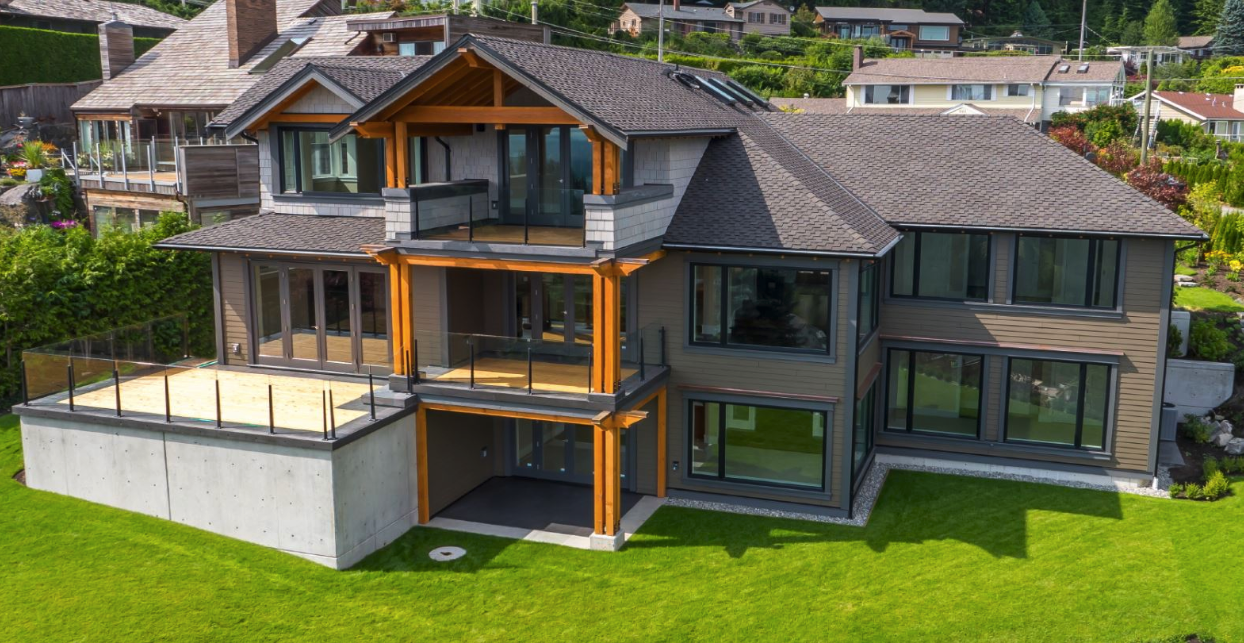
Understanding Insurance When Building a New Home

Understanding insurance is key when building a new home—for both homeowners and builders.
Therefore, it's important to understand the different types of insurance, such as home construction, new construction, and homeowners insurance for new builds.
Knowing about these insurance types and their roles during construction helps manage risks effectively.
Types of Home Construction Insurance
When tackling home construction projects, either from the ground up or major renovations, you need specific insurance.
Homeowners insurance and builders risk insurance are crucial. Homeowners insurance kicks in after construction and offers protection for your home.
On the other hand, builders' risk insurance covers unexpected events during construction that protects materials, equipment, and the building itself.
What Does Builder's Risk Insurance Cover?
Builders risk insurance protects your investment from start to finish. It covers theft of materials, vandalism, weather damages, and construction accidents.
Although details may vary, this type of insurance typically steps in before homeowners insurance does to reduce the financial risk during construction.
Selecting the Right Home Construction Insurance Policy

Choosing the right insurance for a construction project involves looking at the project's size, timeline, and risks. It's important to regularly check and update the policy to match the project's stages to make sure that the coverage is enough.
Also, hiring licensed builders is key because using unlicensed contractors can risk the insurance not covering claims.
Fire Resistance
More recently, as the climate continues to change—and the development of houses and communities across the US increases—wildfires are becoming more common.
As a result, insurance companies are not covering as many homes and building materials that were traditionally used to create houses and commercial buildings.
The fire-resistant properties of ICFs contribute to safer home environments and can influence insurance considerations, which can potentially lead to lower premiums due to decreased risk.
Energy Efficiency
ICFs offer superior insulation for notable energy savings. This improved efficiency can have financial benefits to homeowners.
Durability
The inherent strength of ICFs ensures long-lasting structural integrity by minimizing the need for repairs and maintenance, which can affect insurance costs and overall investment value.
Cost-Benefit Evaluation
While ICFs may have a higher initial cost, the long-term savings on insurance, energy, and maintenance make them a cost-effective choice for homeowners, particularly in regions prone to extreme weather conditions.
Importance of Homeowners Insurance for New Construction
Once construction is finished, it's crucial to switch to a detailed homeowners insurance policy.
New buildings usually get lower insurance rates because they're built with modern safety standards and materials.
Insurance companies often see new homes as less risky, so they might offer lower costs than for older buildings, which could have old systems and be more prone to damage.
How Net Zero Goals Transform Homeowner's Insurance
The shift towards global net zero policies is reshaping the insurance landscape, with insurers actively supporting environmentally sustainable practices. Initiatives like the Net-Zero Insurance Alliance demonstrate the industry's commitment to becoming a net-zero emissions economy.
This evolution in the insurance sector signifies potential benefits for homeowners who adopt sustainable building practices, such as Insulated Concrete Forms (ICF).
As the industry aligns with climate goals, properties built with sustainability in mind, like those using Fox Blocks' ICFs, could see more favorable insurance terms that reflect the reduced environmental and financial risks associated with green buildings.
Fox Blocks: Enhancing Security in High-Risk Areas

Structural Resilience and Energy Efficiency
Fox Blocks ICFs offer unparalleled structural resilience, which is crucial for homes in areas susceptible to natural disasters like hurricanes and earthquakes. With a range of core widths from 4 to 12 inches, the forms can support diverse architectural designs, including specialized blocks for complex structures. The double-layer insulation and monolithic wall air barriers provide significant energy savings that can potentially reduce heating and cooling costs by up to 50%.
Design Flexibility and Durability
The product line includes T-Blocks and 45 Degree Angle Blocks for versatile construction options such as curved walls or intersecting systems. This flexibility doesn't compromise strength; it's essential for resisting extreme weather to enhance the building's durability and lifespan.
Insurance and Long-term Savings
Using Fox Blocks ICFs can lead to insurance savings by minimizing the risk profile of buildings in disaster-prone areas. Insurers often recognize the superior durability and risk mitigation of ICF-constructed buildings by offering lower premiums compared to traditional construction methods.
The integration of Fox Blocks into a construction project not only secures the structure against environmental threats, it also aligns with sustainable building practices that support Net Zero Energy goals and contribute to substantial long-term savings.
ICF: Maximizing Resilience and Insurance Benefits
Disaster-Resilient Construction with ICF
Utilizing ICFs addresses the growing need for buildings to withstand natural disasters such as wildfires, floods, and storms. These materials are recognized by insurers for their ability to enhance safety and potentially lower insurance costs.
Insurance Advantages of ICF Technology
The inherent strength and durability of ICFs can directly impact insurance considerations, with the potential for reduced premiums and improved policy terms due to the lower risk associated with ICF-constructed properties.
Financial Incentives and Savings
Programs like FORTIFIED by the Insurance Institute of Business and Home Safety (ibis.org) recognize ICF construction for its resilience by offering possible discounts on insurance. Beyond the immediate insurance savings, ICFs present long-term financial benefits, which makes them a financially sound choice for construction projects.
Maximize Insurance Benefits with Fox Blocks ICF

Fox Blocks ICFs excels in fortifying your home against environmental hazards, which can significantly impact your homeowners insurance rates. By opting for these innovative construction materials, we not only safeguard your properties, but also tap into potential insurance savings.
Contact us today and see how integrating Fox Blocks into your home can enhance safety, sustainability, and economic efficiency!